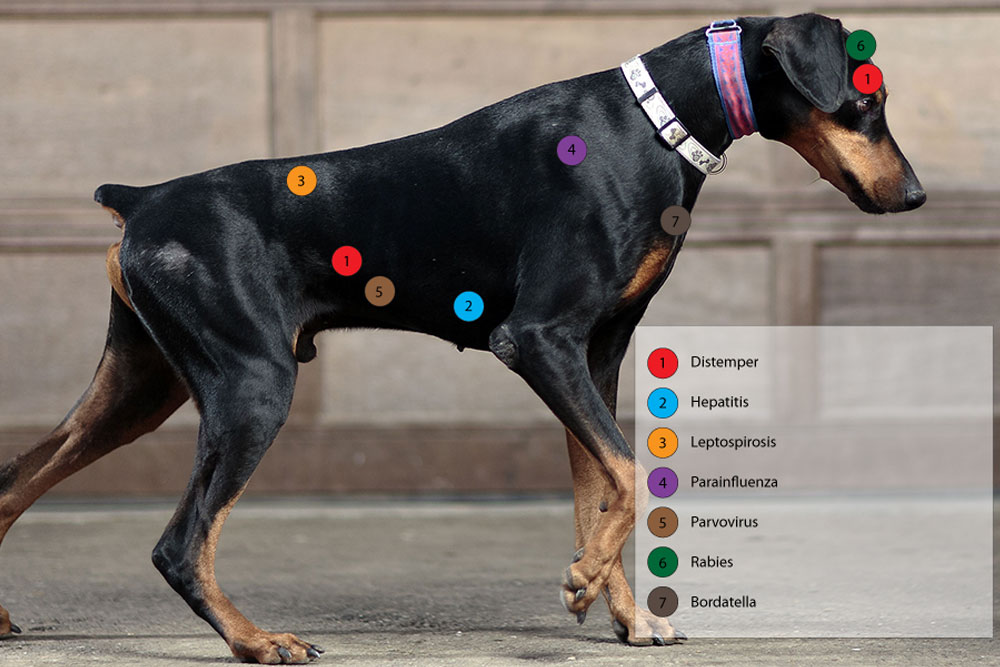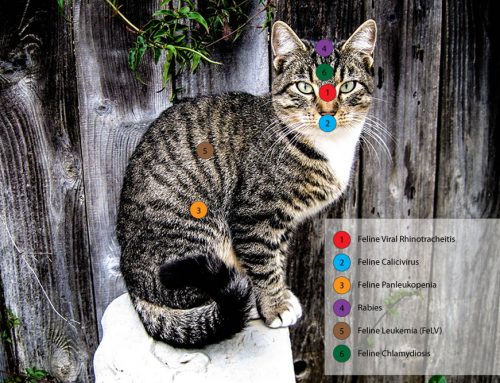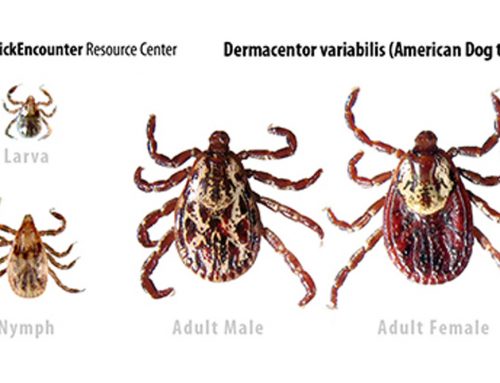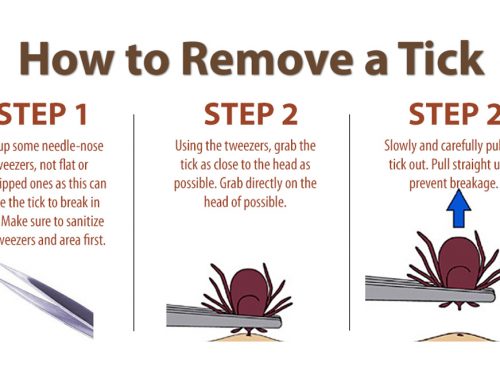Protecting Your Dog from Disease
Protecting your dog from a disease is better than treating a disease once it occurs. That is why many veterinarians and dog owners rely on vaccines. They work so well that some dog diseases are rarely seen anymore. This is because most dogs have developed protection by receiving the right vaccine for the right disease at the right time. Here at East Hill Veterinary clinic we use VANGUARD® vaccines.
How do Vaccines Work?
Vaccines help your dog fight off certain viruses and bacteria that cause disease. The vaccine does this by showing your dog’s immune system what the viruses and bacteria look like.Vaccines are made from a harmless form of the virus or bacteria. This “trains” your dog’s immune system to recognize and to fight off the virus and bacteria if it comes in contact with it in the future. Some vaccines help prevent your dog from getting the disease altogether and others help reduce how sick your dog will get if it becomes infected. If your dog is infected with a disease before he or she is vaccinated, a vaccine will not treat or cure the infection.This fact is especially important in puppies.
How Effective are Vaccines?
Vaccines work very well—but they are not 100% effective. Some dogs may not be protected by a vaccine if they have another disease or illness at the time of vaccination. Other dogs may not be protected due to stress.These conditions may weaken your dog’s immune system and keep the vaccine from doing its job. Because of these factors, it is important to follow your veterinarian’s recommendation for what and when vaccines should be given to your dog.
Situations that may cause your dog stress:
- A new dog or new pet in the house
- Moving to a new house, or major home improvements
- Poor diet
- A family member gone from home more often than usual
- Traveling
- Other medical problems or illness
How Often Should My Dog be Vaccinated?
Puppies: A puppy’s own immune system is not fully developed at birth, and it receives protection through its mother’s milk.This protection decreases gradually over the first few weeks of life. How quickly this happens depends on the puppy, but in most puppies, the protection is gone by 16 weeks of age and sometimes earlier.While the mother’s protection helps prevent disease in the puppy, it also may interfere with the puppy’s ability to respond to the first few vaccines it gets. This is why your puppy needs several vaccinations over the first few months of life to become protected.
Adult dogs: Need to be vaccinated one year after their last puppy vaccine and then every 3 years for Rabies and DaPPV. Leptospirosis, Rattlesnake, Bordatella and Lyme vaccines require annual boosting to remain effective.
Should Some Dogs not be Vaccinated?
In some cases, dogs should not receive a vaccine:
- you think your dog is sick
- your dog is pregnant or nursing or you plan to breed your dog soon
- vaccines have caused any problems for your dog in the past
- your dog has been around any sick animals lately
- your dog has—or had—medical problems or allergies
- you are giving, or plan to give, medicines to your dog (this includes medicines and products that you can get without a prescription)
Vaccine Reactions
We use the safest vaccines currently available to the veterinary profession. We have chosen the above vaccines and follow the current AAFP Vaccine Guidelines to (1) minimize the number of vaccines we are administering to our patients and (2) to minimize the number of side effects to our patients. Even with our best intentions, a very few number of animals may still have a vaccine reaction. Below is a summary of these reactions and what you should monitor. If your pet has had a vaccine reaction, we will need to tailor a specific vaccine protocol for your individual cat to help avoid such reactions in the future.
- Mild vaccine reactions, if they occur, may last for a couple of days after the vaccine is administered and may include:
- Mild decrease in activity
- Mild pain or soreness at the injection site
- Mild decrease in appetite
- A small lump at the injection site
- Mild upper respiratory infection
Severe vaccine reactions that occur within a few minutes to a few hours after vaccine administration. If you notice any of these severe vaccine reactions, veterinary attention is required IMMEDIATELY:
- Vomiting / Diarrhea
- Fever
- Difficulty breathing
- Swelling of the face
- Profound lethargy
We will tailor your care to fit your needs and the needs of your pet.
Guide to the Diseases
Here is a guide to the diseases numerically as per the image above:
- Distemper is a contagious viral disease that affects the respiratory and nervous system of dogs. Distemper does not cause “bad temper.” It is a serious illness that is almost always fatal. The distemper virus spreads easily from dog to dog, and is often fatal in poorly vaccinated dogs. The signs include diarrhea, fever, runny nose and eyes and coughing. Other signs are loss of appetite, nervous conditions such as convulsions, and death.
- Hepatitis is a viral infectious disease that affects the liver and eyes and may cause reproductive problems. Hepatitis is not contagious to people.
- Leptospirosis is a bacterial infection that affects the kidneys and the liver. Signs include fever, loss of appetite, and pain throughout the body. Other signs are loss of activity, depression, and death. These bacteria are spread through the environment by both wild and domestic animals. These bacteria usually live in wet areas such as ponds, puddles and slow-moving streams. People can get leptospirosis too.
- Parainfluenza is a highly contagious viral respiratory disease that may spread quickly from dog to dog. It is one of the common causes of upper respiratory tract disease in dogs. Signs include a deep cough that suddenly appears and may last for weeks. This cough will often occur when your dog is excited or active. In rare cases, your dog can come down with pneumonia.This virus can spread through the air and is easily passed from dog to dog, when dogs interact—at dog parks, boarding, grooming, and doggy day care.
- Parvovirus is one of the most serious contagious diseases for puppies, causing severe vomiting and diarrhea (often with blood in it) while suppressing the immune system and may be fatal even if treated. After the initial vaccination series, a blood test can be done to ensure adequate protection. Dogs with parvovirus disease who are treated are usually in the hospital for a long time. These viruses spread from dog to dog very easily and are all over the environment. This means that your dog can get sick without ever coming in direct contact with a sick dog but by being somewhere that a sick dog had been. Rottweilers, Doberman Pinschers and Pitbulls seem to be more susceptible than other breeds.
- Rabies is a serious public health concern because the virus is carried by mammals including raccoons, skunks, foxes, bats, dogs and cats and can be transmitted to humans. The virus is spread through wounds, via the saliva of a rabid animal, and causes symptoms such as: overly vicious or timid behavior, lack of coordination and difficulty swallowing. Once these symptoms appear, the disease is fatal. While there is an effective post-exposure treatment for humans, there is none for animals.
- Bordetella is one of the bacterial causes of “kennel cough.” Signs like a honking cough during the night can be stressful for the dog as well as the owner.








Leave A Comment